
br>
World Hockey Champion and former general director of the Omsk Avangard Maxim Sushinsky said that for he was shocked in the USA, compared St. Petersburg of the 90s with the atmosphere from the series “The Boy’s Word” and explained why he was bored living in Switzerland.
— We are now in your car dealership. How did the idea to start a car business come about and when?
— We started importing the first cars when I was playing in Omsk. My partner brought cars from Europe and the USA. In 2002, they decided to legalize this business, so they opened a legal entity. Our first office was in the Yubileiny Sports Palace. Then I was already in SKA. I didn’t have to walk far; I went straight from training to the office. Six years later, we built the first building and became dealers.
— Have any of the hockey players contacted you?
— Of course, and not only from St. Petersburg. Everyone in the team knew, so many bought cars from me.
— Did you invest a lot?
— All the money. After about two years, we started receiving dividends. It was an investment because the buildings remain. If I invested in a computer program, there would be a minus, because they do not remain, unlike real estate.
— Were you afraid that the business would not work out?
— Anyone who goes into business is afraid of something. It's good that it went.
— You are an official dealer of Mercedes. What do you need to get a license?
— There was a representative office of the company in Russia. It was there that we went with the project, knowing that there was no Mercedes in this area of the city. It worked out well at that moment when one of the applicants decided to convert his salon to another brand and abandoned the dealership. Toyota, by the way, is still standing nearby. We received an application and the building was built. We even bought the columns that are now standing from a neighbor at a discount. This process lasted about two years.
— How did the pandemic affect business?
— Oddly enough, good. There was a shortage of cars, and prices began to rise. For the first three or four months we issued what we had in our warehouses. Then prices began to rise, and there were fewer supplies — not only in Russia, but also in the world. Until now, half of the German factories have not fully started up and produce less.
— What about SVO?
— After the departure of our brand, we rebuilt and we work with Chinese manufacturers.
— How much has the demand for cars changed?
— We knew how to work, so we signed a Chinese premium car brand.
— But you still have German ones. Are these leftovers?
— No, these are new supplies. We bring it through parallel import.
Previously, you could kill for ten kopecks
— You were born in Leningrad. Did you have options on what sport to play besides hockey?
— Hockey was the last. There was figure skating, swimming, football. We are still friends with Evgeni Plushenko. He invited me to the show, but there is not enough time.
— What time is it — the end of the Soviet Union?
— I started my career in USSR and was called up to the youth team. After the collapse of the country, nothing has changed. Only players from Ukraine, Belarus or Kazakhstan began to play not for one country, but for different ones. Then there was a time of complete stagnation in hockey, there was no funding. The national team did not shine.
— Your career began in the 90s. It is unlikely that the young hockey player had a lot of money. Did you earn extra money somewhere?
— Of course. Hockey players received so little that I didn’t have enough for milk and bread. At night, my wife and I got into the car and drove taxis. We had an old nine. I earned twice as much in a taxi as in SKA. About 200 rubles, and in hockey it was about 100.
— How long did you work like this?
— About a year. Then the salary at the club increased to 300 rubles. There are more matches, training sessions, training camps.
— Were there crazy clients?
— There were no incidents with fights, but there were cheerful passengers. I loved chatting with them. I can’t remember anything specific, but on Friday and Saturday people were constantly taken out of restaurants, discos and bars.
— You got married early. Is part-time work a responsibility for the family?
— I got married at the age of 18, a year later we had a child, so we had to get out.
— Did the clients somehow react to the fact that you and your wife were working together?
— No, no one said anything at all. Previously, there was no taxi in the usual sense. He just waved his hand, and whoever stopped, got his slippers.
— How did you and your wife meet?
— At the bus stop. I had to go to the center, and for some reason a friend wanted to get his hair cut in the center. When we were driving back, I saw a beautiful girl with a heavy bag. She asked for help, and that’s how we met. We got off at one stop, but it turned out that she was not my neighbor, she was just going to visit. And we lived in different parts of the city.
— What is the 90s in St. Petersburg?
— A terrible time.
— People had this every day . Of course, I was afraid, because previously they could kill me for ten kopecks. Life was worth nothing.
— And when you worked as a taxi driver, were there similar stories?
— I looked at the adequacy of people and did not take on completely drunk or thugs. All the same, you can see from a person what he is capable of.
I bought a carpet with my first salary at Avangard
— You worked under the leadership of Boris Mikhailov. What is his peculiarity?
— He is a very confident champion who has won everything. He instilled in me that in every game you have to give yourself and prove to everyone that you are the best.
— Could you shout?
— Of course, he could, but he could also praise. He had a favorite expression: “from love to hate there is one step.” If he says good words to you today, this does not mean that you will hear them tomorrow. There were other coaches at SKA. Igor Shchurkov taught me to skate. When I joined the club at 16, I was one of the slowest players. After each training session he left me alone and I learned to ride again. Six months later I became one of the fastest players in the league.
— Why did you leave SKA?
— Very banal, the financial component played a big role. When my contract ended, SKA offered me a salary of $600, a two-room apartment and a six car. There were such contracts back then. The apartment was from the army, which means you have to work for it for five years as an officer. Avangard offered me a thousand dollars, a three-room apartment in St. Petersburg and a car — a nine or eight. The benefit was obvious. Now it seems that a thousand dollars is not much, but then for me it was crazy money.
When we arrived in Omsk and received our first salary, my wife asked what to do with the money, where to spend it. In the end I decided to buy a carpet. In the first year I earned two cars. I didn’t know that every year in Omsk the top scorer was given a Lada 99. I became one, they gave me the keys. True, I took the money and bought myself my first Hyundai. It was a beautiful car, red.
— How did your wife perceive the move from St. Petersburg to Omsk?
— We moved to a hostel, where there were two rooms, a small kitchen about seven meters, a toilet and that’s it — no washing machines or other equipment. In one room there was a sofa, and in the other there was a bed. The wife arrived, sat on the trunk and began to cry. But then she arranged everything herself. We lived on the base; the entire floor was given over to the team. There were seven or eight of these apartments in total, and even one of the coaches lived there. Every day was fun, there were joint dinners. One player had a larger apartment, so the girls agreed on who would cook what, then they brought everything to one apartment and ate.
— Did you go anywhere with your teammates?
— I remember that fast food and pizzeria were the first in Omsk. Then restaurants began to open. In general, it used to be not customary to go to restaurants as it is now.
— Where did the nickname Su-33 come from?
— In Omsk, a commentator came up with it. There was another nickname — SKK: Sushinsky, Knyazev, Kamensky. The stadium was also called SKK.
America was space compared to Russia
— How did you decide to go to the NHL?
— I went there as a mature player, I wanted to understand what it was like. Any hockey player, taking his first steps, wants to get into the best league in the world.
— Amazed by the USA?
— I was in the USA for a long time with a children's team, so the country was not new to me. Of course, in terms of hockey, America was a cosmos compared to Russia. I arrived, and there they wash your uniform and clean up after you. I came, dropped my things, and you already had everything clean hanging there. Just go out and play hockey.
— Are people different?
— I immediately made many friends in the city. After the first training sessions and exhibition games, people began to recognize me. It was a shock for me — how do people know me? And they said that they were watching me, asked for an autograph. The state of Minnesota itself is very hockey-centric, and besides, there was no team there for a long time.
— Did the family immediately agree to move?
— Of course , there weren’t even any questions.
— Did they like it there?
— Probably, yes. The state of Minnesota is not the most favorable for living, but it also has four seasons, like ours. Good summer and good winter.
— What is not quite suitable for life there?
— This is a working state, very good for hockey, but still not California, where there is sun every day and you can walk around in shorts.
— You arrived in the USA a couple of weeks later. Why did this happen?
— I had appendicitis the day before departure. They took him to the hospital, cut him out, and so they had to change his tickets. I arrived when the training camp had already started. The first matches between each other they protected me and did not let me out on the ice. I watched from the stands and worked out an individual program with a physical trainer. Two weeks later he was back on the ice, but he played all the exhibition games, in which he scored a lot.
— Did you have any difficulties with the language?
— I didn’t know a single word in English, except thank you. I wasn’t the only one who came, as it turned out. There were also Slovaks and Czechs of my generation — they also did not know the language. Younger Slovaks studied English at school, and my peers studied Russian. We were given an English-speaking teacher, with whom we went.
— How is your English now?
— It’s much better now, I can already communicate freely. I learned a little.
— Was it difficult to adapt to the USA?
— I immediately began to understand hockey phrases, but at first there were problems in everyday life. Especially with banking: in Russia there were no cards, but in the USA you had to open an account and write checks. My first acquaintance was in a bank. The girl who helped me said that her husband is Russian, and he knows that I moved to the USA. She invited me to lunch, and in the end we became friends with them for a long time. Even when I left, I left all the things I bought with them.
— Do you still communicate?
— No. We don’t even wish you happy holidays. There used to be a time when almost no one had mobile phones. It was all just beginning.
— What surprised you in the USA when you arrived there?
— There was no particular surprise. It was a shock to me that all the people there said hello and asked how things were. At first I thought that everyone was really interested in how I was doing. Then I realized that it was just a greeting and no one cared.
— Did anything disappoint you there?
— Probably nothing. When I left there, it was a completely different country. Now we have grown up and taken a big step. The same McDonald's, Starbucks and other chain cafes in the USA were new to me. Even car dealerships where you can come and choose any car.
I didn’t believe it when Jagr came to the KHL
— Do you often visit the USA?
— Now often. I stayed all summer. My daughter gave birth to her third child there.
— What is the attitude towards Russians there now?
— I flew to Las Vegas not long ago to visit the guys. Russians are treated very well, there is no neglect, even at customs. When I arrive, I say that I played in the NHL. They immediately start communicating and asking where he played. If you say such things there, it is not perceived as boasting. The person begins to respect you, talks to you differently.
— Do you want to move there?
— No. Of course the weather is great. I always liked California better, but now Miami is very clean. The governor of Miami cleaned up the city, the state, removed unemployment and illegal immigrants. It used to be unpleasant, but now it's all in California. Sometimes you go to a rich area, but it’s still scary to walk.
— Why did you leave the NHL?
— I wouldn’t say that something went wrong. It went fine, we just didn’t find mutual understanding with the coach. At the age of 26, I was taught to shoot the puck high, and I passed it to an empty net. They tell me that I can’t do that because I could have made a mistake and we could have missed it. But I wasn’t mistaken, and my partner scored. Yes, he scored, but he had to throw it at the glass. That's why they started teaching me how to throw at glass.
— So there was a misunderstanding?
— It's not that there's a misunderstanding. There was just a different vision of the game. The coach played a defensive game, and I was a forward who needed to attack more. Although, when I proved and when I left, I was the second scorer in the team. I wanted to play so much more than sit on the stands, so I left. I asked for an exchange, but my agent said it was impossible. Then I went to the president of the club and terminated the contract. When they told me that they needed me, I replied that I couldn’t play two matches and sit for three.
I was 26 years old, I had to play. They asked me to return the signing bonus and told me to buy the plane ticket myself, although according to the contract they must pay for it. I gave the signing bonus, which I was paid after deducting 42% of taxes, along with this tax. After that I left for Omsk.
— What other options were there in the NHL?
— The agent said that there were also “Los- Angeles» and «Columbus».
— After the contract was terminated, wouldn't it be possible to move there?
“I wasn’t even planning on doing it anymore.” I signed a long and big contract in Omsk, where my salary was almost three times more than in the NHL. I already tried and realized that I could, so I wanted to play here.
— Did you have any regrets that you didn’t fully realize yourself there?
< br>— Then there was such a turning point in player payments. There the contract was for 350 thousand dollars, but here it’s a million. There was a financial benefit to staying here to play. I proved to myself that I can play there. Plus, the age came when it was necessary to earn money, and not to prove something. In addition, the KHL began to organize here, money began to be paid, the stars went. Then the lockout started and Jaromir Jagr arrived, so the level in Russia became different.
— What is it like to play with Jagr?
— I didn’t believe it when he arrived. When the club president told me that Jagr would be there, I asked what he accepted. Everyone in the locker room was stunned to see Jagr. Such a figure has arrived in Omsk! Although before that I brought the Czech Pavel Patera, with whom I played in Minnesota, and he is an Olympic champion. When we were put on the same line in the USA, we worked wonders, because at that time European hockey was very different from American.
There is no point in sitting behind a closed curtain
— Tell us about Olympic Games
— It was great at the Olympics, but it’s a pity that we didn’t achieve anything then, although we did very well. I didn't have enough physical condition. After the match we arrived late, and the next day we had a strong training session, so we were just pumped up. Because of this, everyone's mood dropped. In the end, they lost there too.
— What is the Olympics for an athlete?
— A triumph of emotions and what you’ve been waiting for all your life. This is such a difficult situation now, fortunately they allowed single skaters. Yes, without a flag, but at least this way. We have to go back there, because there is no point in sitting behind a closed curtain. All athletes want to perform not only in their own arenas, but also at the international level.

— That is, you would advise going to the Olympic Games?
— Victory at the 2008 World Championships — what was that?
— It was the most legendary final in many years. We haven't won the world championships for fifteen years. The emotions were crazy. We were in Canada, we beat Canada. Before the game there was a procession of fans with a flag when the road was blocked. It was very sincere, there was no political background.
— Everyone knows what happened in the final, but what happened after the final whistle?
— We came to the locker room, opened champagne, and then seemed to go to a restaurant. Konstantin Gorovikov and I did not wait for the plane, which was arriving unknown when, bought tickets and flew to St. Petersburg. It’s good that it happened this way, because for the remaining two days we couldn’t fly out of Canada. We arrived at the President’s award ceremony, sleepy and rested, while the rest were off the plane. Ovechkin was wearing flip-flops and couldn’t put on his boots. There is a photo of him in these slates.
It was boring in Switzerland
— Why did you decide to play in Switzerland?— It was a good experience for me. To be honest, in my head I was already done with my career. I trained with the Silver Lions and kept myself in shape every day. After the New Year, at the end of the season, the agent called and said that the Swiss club Friborg-Gotteron was interested in me. The son of Vyacheslav Bykov played there. I saw that the team was in first place, and the playoffs for a hockey player are the most interesting time, the crown of the season. I asked about the conditions, but they were not there. I said the conditions were good. I only had a bonus for completing each round. The only thing they promised me was a car and accommodation in a house. The car was an Opel, but after a day I realized that I couldn’t drive it. I went and rented a Mercedes, my teammates were surprised when I arrived in it.
I was received well, I scored and made an assist in the first game. I liked it there very much. The atmosphere was lively and new to me. Before each match they made skits, which is not the case in Russia. Everyone took turns performing something — some with music, some riding a scooter into the locker room, some bringing a stuffed animal in an opponent’s T-shirt and cutting off his head with a chainsaw. I asked when it would be my turn, but they told me it was too early. It was fun. Unfortunately, we lost in the final and took second place.
— So you didn’t take part in the skit?
— There was a general skit. I don’t remember the music anymore, but all the people stood, and when the music started, they started showing simple movements. They let me take part in this scene because the whole team had to participate. We were fooling around there, pushing each other. Someone ran out completely naked. Everyone is already in uniform, but he is naked.
— What was special in Switzerland?
— In this country you are at home every day. You always spend the night at home, there is no separation from your family. True, there was nothing to do in the city where I was. Friborg is located midway between Geneva and Zurich, so I went to both cities for dinner. I once said that I had dinner in Zurich, to which the person was surprised, because it was an hour away. So what? I drove around Moscow and St. Petersburg for an hour in each direction, and the roads there are ideal.
There was another funny story. I lived in a two-story house and at night I heard noise from below. I went down to the laundry room, and there was a fat, bearded guy standing there. It turns out he lived here. He had an entrance from the street and lived in this basement. In the end, he and I went to drink beer. Then we became friends. It was a student who was studying. They rented a room to him cheaply.
— Is this a normal situation?
— Definitely not for me. And they apparently had an agreement with the club. The club also rented a house. They just forgot to tell me. Although in Switzerland everything seems to be calm, it’s a small village, there are no fences.
— Did this student live there for a long time?
— I don’t know exactly, but he came every day. Then I didn’t hear from him because he was leaving for vacation. Probably, there was not even a room in this basement.
— Is Switzerland ideal for living?
— A very quiet, calm, measured country. I don’t want to live there, because everything there is sluggish. I was bored there. Life ends at nine in the evening, everything is dark, there is nowhere to eat. That's not mine. And the prices were high then.
— Was everything at a high level?
— No, we had a scam stadium, everything was made of wood. The locker room was small and there were no skyboxes in the stands. But hockey was very popular in this city. Bern was nearby, and there was a new stadium there and it was always packed.
— What was the motivation for going to play for free?
— I have I already had a business, it was only interesting to win the title. I spent two to three times more there than I could have earned.
— Did you regret going there?
— No. I still have the medal, it’s a memory. The finale is a different mood and motivation. We had a young guy, about 17 years old. I followed him at the awards ceremony. They hung a medal on him, but he was upset and took it off. I asked how many medals he had. He said it was the first. I say: what if she gets offended and victory doesn’t come again? The guy took it and put it back on.
— How good is the Swiss championship in terms of level?
— Then a lot of Canadian coaches and hockey players came. The level is amazing. To be honest, I was even stunned myself. Of course, they were weaker than the teams in the KHL, but some of us could have been average.
— What do your children do?
— The youngest daughter is involved in equestrian sports. Now it’s moving to a more serious level, we need to buy a horse. She has the makings of winning competitions so far. I have no plans to raise an athlete. One athlete is enough in a family. The main thing is that the girl enjoys communicating with horses and does what she likes.
The eldest played tennis and played well. I went to camps in the USA, lived in Miami with Kasparaitis. But she got married early, and her career ended. The middle daughter took up figure skating, skated with Alexei Mishin, then took up dancing. And now he mostly studies and does whatever he likes. She is good at skiing and skating. She likes everything. Recently a grandson was born. Let's see where it goes.







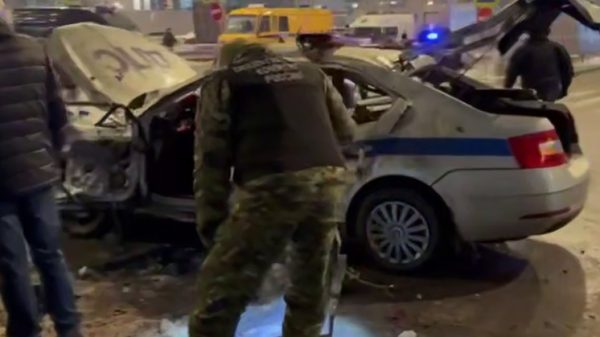
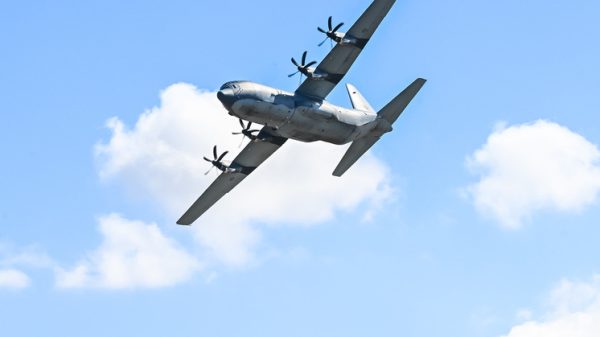

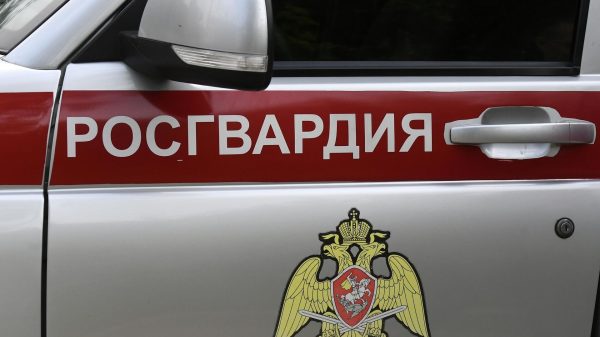
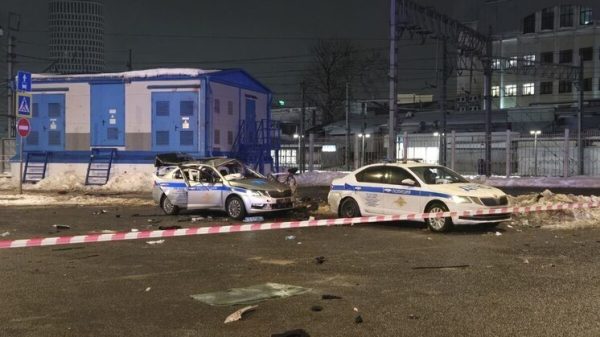



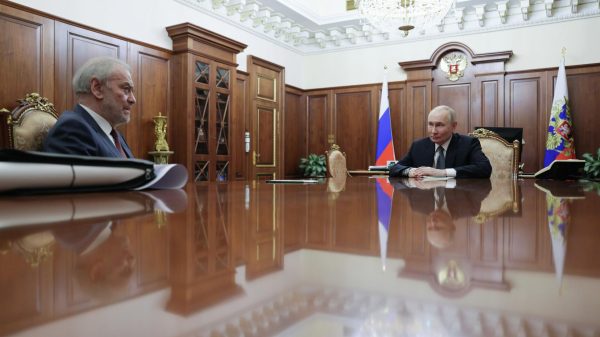


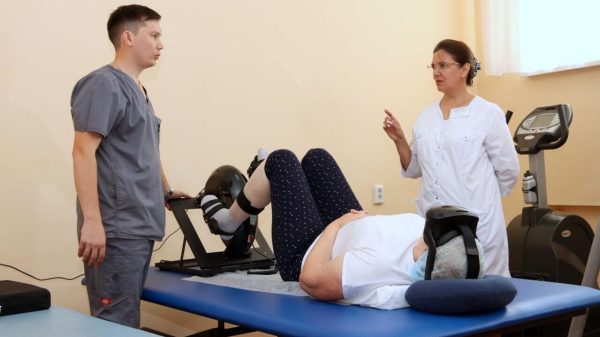

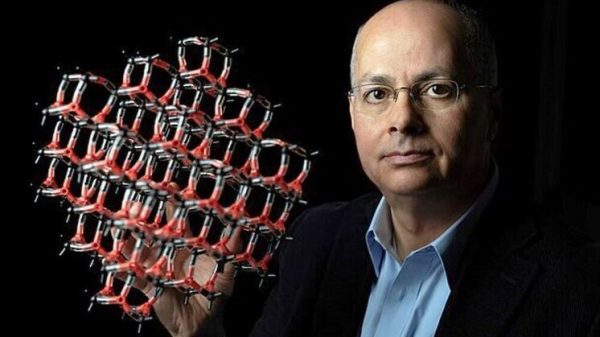
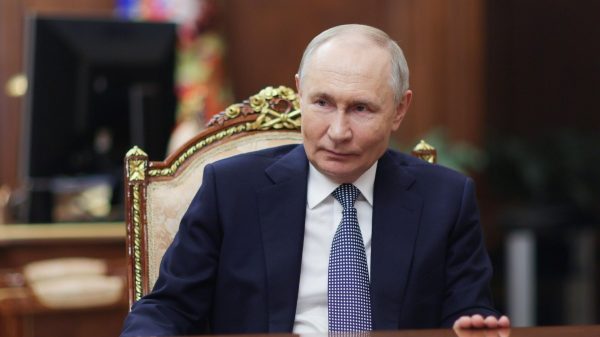
































Свежие комментарии